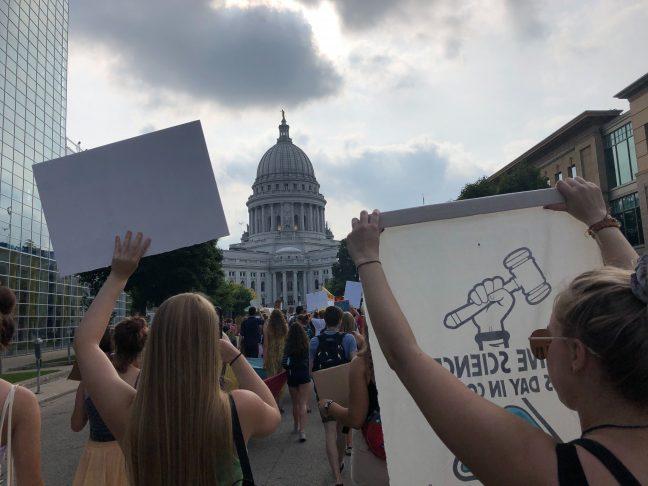The City of Madison joined the US Department of Energy’s Better Climate Challenge Feb. 28, committing to a 50% reduction of facility greenhouse gas emissions by 2030.
The DOE will support Madison’s commitment by providing the city with technical assistance, learning opportunities, and a platform to communicate its achievements, according to the City of Madison website.
The challenge aligns with Madison’s existing commitments to go green, City of Madison Sustainability and Resilience manager Jessica Price said.
“We have this overall commitment of one hundred percent renewable energy and net-zero carbon emissions for city operations by 2030, and then ramping that up to community-wide by 2050” Price said.
One way Madison is working to decrease its greenhouse gasses is by converting all city vehicles to low-emission vehicles, Price said. This is difficult because different vehicle types use different types of fuel, Price said.
Madison also recently got Leadership In Energy and Environmental Design certification for many of their facilities, Price said. LEED is a certification offered by the U.S Green Building Council that ranks a building’s sustainability, according to the LEED website.
The USGBC holistically grades a building’s sustainability, with “certified” being the minimum required for certification, and “platinum” the maximum grade. Madison plans to continue getting LEED certification for all cultural projects, Price said.
“The city has actually adopted an ordinance that says, any time that we build a new facility, or we renovate a facility, then we strive to get at least silver LEED certification,” Price said.
Over ninety organizations are participating in DOE’s Better Climate Challenge, including Ford, GM, Harley Davidson, UW Health, Anthem and cities across the country, according to channel3000
The Better Climate Challenge allows Madison to connect with communities and organizations to learn and exchange knowledge on sustainability, Price said.
Though the city has been at the forefront of the clean energy movement, the city must focus on equitably supporting the communities most affected by climate change, Madison District 8 Alderperson Juliana Bennett said in an email.
“I would say that the City of Madison has a history of the leading city in terms of green initiatives in the nation,” Bennett said. “We still have a lot of room to grow. Specifically, I believe we need to take a more intersectional approach to environmental justice, by recognizing that certain communities are disproportionately impacted by climate change.”
The DOE collaborated with the Housing and Urban Development Secretary, White House National Climate Advisor and other organizations to develop the Better Climate Challenge to work with governments and businesses toward a clean energy future.












